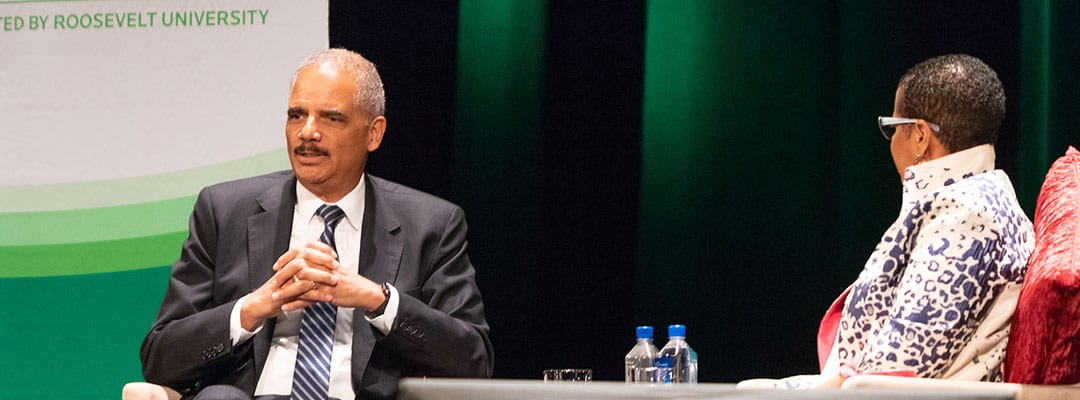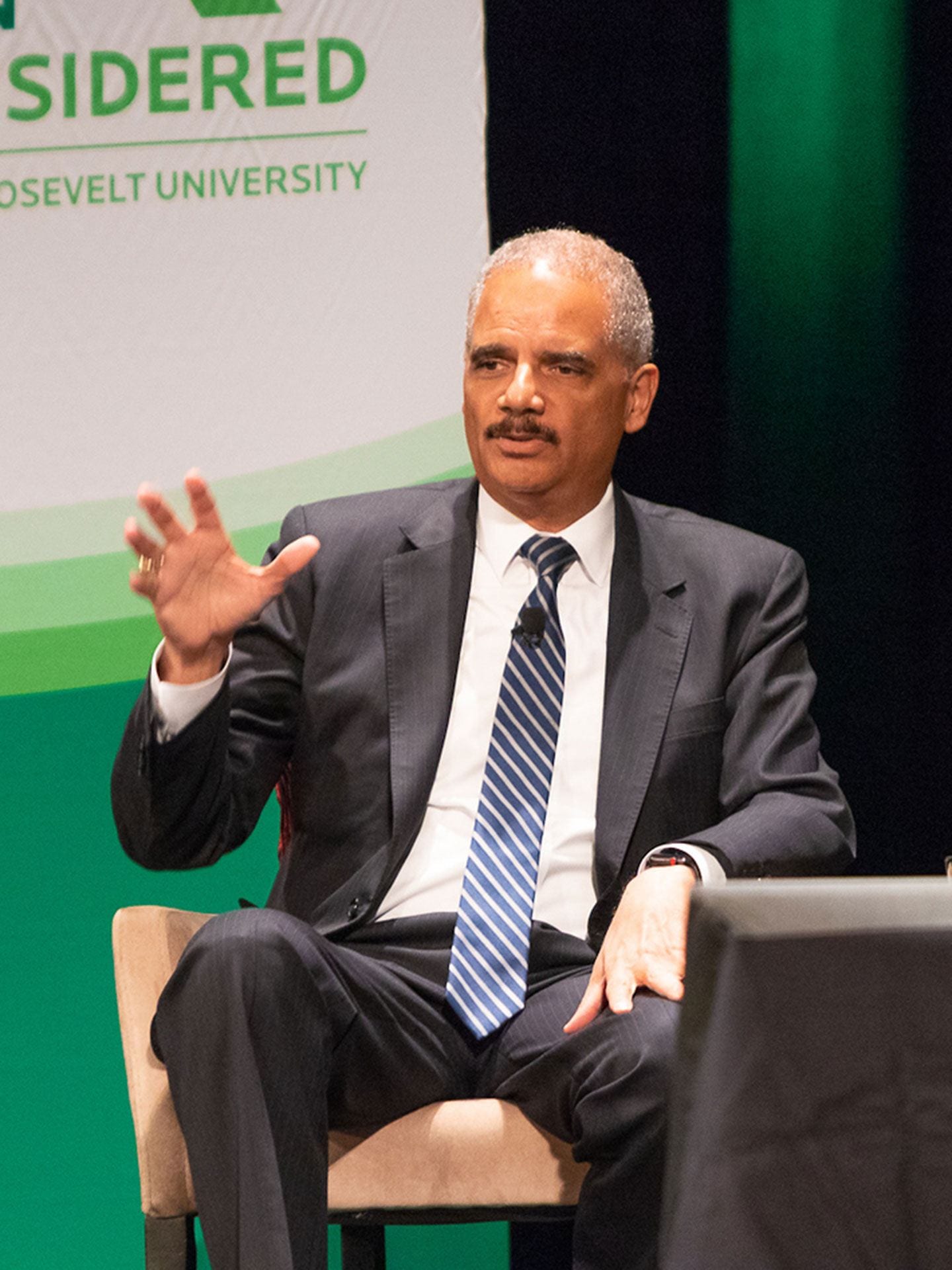Public Service and Civil Rights: A Conversation with Eric Holder
AMERICAN DREAM RECONSIDERED 2018by Grace Heimerl

What forms can the American Dream take? It’s a fluid term that can be interpreted in numerous ways. During his keynote discussion, “Public Service and Civil Rights,” Eric H. Holder, Jr. demonstrated just how dynamic the American Dream can be. The 82nd Attorney General of the United States, father, even basketball player, Holder held a lively and charming conversation with friend and colleague, former Seventh Circuit U.S. Court of Appeals Judge Ann Claire Williams, about the types of roles he has held as he has pursued his own American Dream.

(from left) Eric H. Holder, Jr., The 82nd Attorney General of the United States; Judge Ann Claire Williams, Seventh Circuit U.S. Court of Appeals.
President Barack Obama nominated Holder to serve as Attorney General in 2008, making him the first African American to hold the position. Holder has been described by the former president as possessing a great deal of “toughness and independence,” and was chosen based on his history of pursuing equal voting rights and toughness on terrorism, among other qualifications.
Holder delighted the audience with his keen sense of humor and witty banter with Williams, one citing the other as an old friend and trusted colleague. However, the humor and laughter were punctuated by myriad poignant moments throughout the evening, with Holder addressing various political and social concerns he had, and how he believed we can move forward as a nation.
Williams ultimately helped paint the portrait of Holder during their conversation, touching on everything from his relationship with his father, Eric Holder, Sr., to his role as Attorney General. Holder shared with Williams and the audience that his coming of age during the civil rights era, and the example of President John F. Kennedy, were massively influential in his development as an attorney and in his interpretation of the Constitution throughout his career.
Holder made sure to reflect on many issues that have troubled the social justice-minded community of Roosevelt University. He acknowledged the “power of the people,” stating the importance of events such as the 2016 Women’s March in the greater tapestry of American social discourse. He touched on topics like gerrymandering, the continuation of the Civil Rights Act, and the role of the Department of Justice in addressing equal voting rights, and how he has ultimately addressed them throughout his career.
Perhaps most importantly, the conversation allowed Holder to provide excellent and relevant insight to the young, eager students in the audience that night. Holder took the time to impart with the audience that civic duty means having the “ability and responsibility” to stand up for what is right and encouraged all young voters to make good on that duty in the 2018 midterms and beyond.
Williams ended the conversation by asking Holder what was ahead for the 2020 presidential election, both in terms of national outlook and Holder’s own personal plans. Holder made it clear that his top priority was encouraging everyone to vote in the 2018 midterms. He elicited an enormous roar from the crowd, however, when he strongly alluded to perhaps changing his address to 1600 Pennsylvania Avenue if he was able.

Eric H. Holder, Jr.
The 82nd Attorney General of the United States
More in this section
Personifying DEI through determination and an open heart
If you want something done, give it to a busy person. That adage easily applies to Lyvette Medina Jones and her ability to juggle work and family with volunteering in her community.
A big change in tuition is brewing for the incoming class of 2023
A recent study by University of Chicago National Opinion Research Center revealed that Americans see the cost of education as the No. 1 barrier to completing a degree or beginning college.
A philosophical approach
In fall 2012, Roosevelt University’s Wabash Building opened — making history as the second tallest academic facility in the United States.



